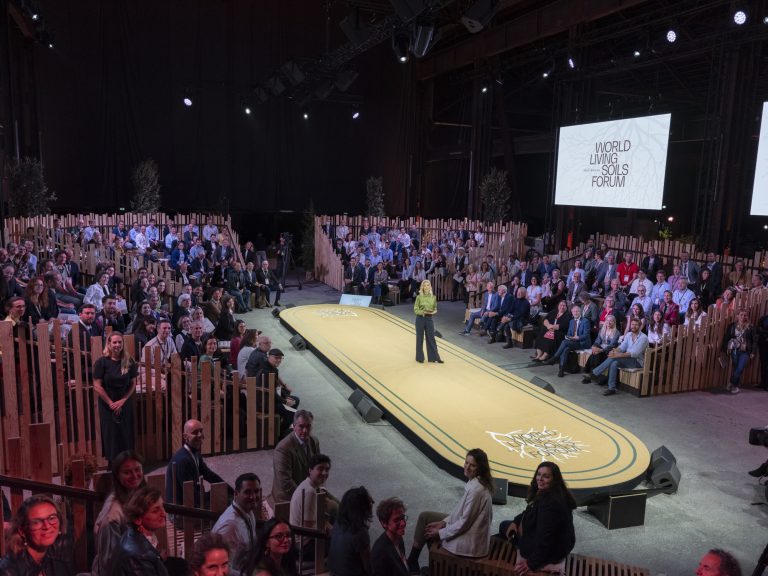The second edition of the World Living Soils Forum (WLSF), organised by Moët Hennessy and ChangeNOW, concluded yesterday at LUMA Arles, bringing together a diverse array of stakeholders committed to soil regeneration. The event underscored the urgent need for collective action to preserve and rejuvenate living soils, which are crucial for sustainable agriculture and biodiversity.
Over two days, more than 500 participants gathered in Arles, with an additional 100 joining through satellite events in China and the United States. The forum featured over 70 sessions, including roundtables, conferences, and workshops, with contributions from 164 speakers and 20 moderators from around the globe. Participants shared insights and solutions aimed at accelerating the transition towards sustainable agricultural and winegrowing practices.
Philippe Schaus, CEO of Moët Hennessy, highlighted the pivotal role of living soils in the company’s agricultural and sustainable development strategies. “We don’t have all the solutions, but we want to act as a catalyst for stakeholders to move towards a common goal of soil preservation and regeneration,” Schaus stated. He emphasised the importance of uniting diverse groups to tackle soil-related issues and foster a movement of committed stakeholders.
At the forum, a call to action was launched, urging greater mobilisation around the need to protect and regenerate soils. The call emphasises the role of living soils in sustaining health, biodiversity, and the foundations of human consumption and clothing. It calls on farmers, businesses, scientists, institutions, and citizens to collaborate on these critical issues. Stakeholders can express their commitment by signing the call for action, available at the forum’s website.
Key takeaways from the forum included the recognition of the complex, systemic challenges facing soil health, which necessitate a multi-faceted approach incorporating economic, environmental, social, and cultural perspectives. By fostering collaboration among all stakeholders, the WLSF aims to accelerate the exchange of best practices, promote innovative solutions, and reshape the narrative surrounding the importance of soils for the future of humanity.
In a notable first, this edition of the WLSF included live contributions from the United States and China, providing a broader international perspective on agricultural and cultural practices. Interactive workshops raised awareness of the importance of soil health, engaging participants in educational discussions.
The “Coup de Coeur” award was presented to the EF Polymer solution, a 100% biodegradable and certified organic superabsorbent polymer designed to improve soil water retention. This innovative product can reduce irrigation needs by 30 to 40% while increasing crop yields by 15%, showcasing the potential for sustainable agricultural practices.
Replays of the conference sessions are available online, allowing broader access to the insights shared during the forum. The WLSF’s commitment to addressing soil health highlights its critical role in achieving sustainability and ensuring the well-being of future generations. As the forum concludes, the call for collaboration on soil preservation resonates louder than ever, urging all stakeholders to act decisively in protecting this vital ecosystem.

